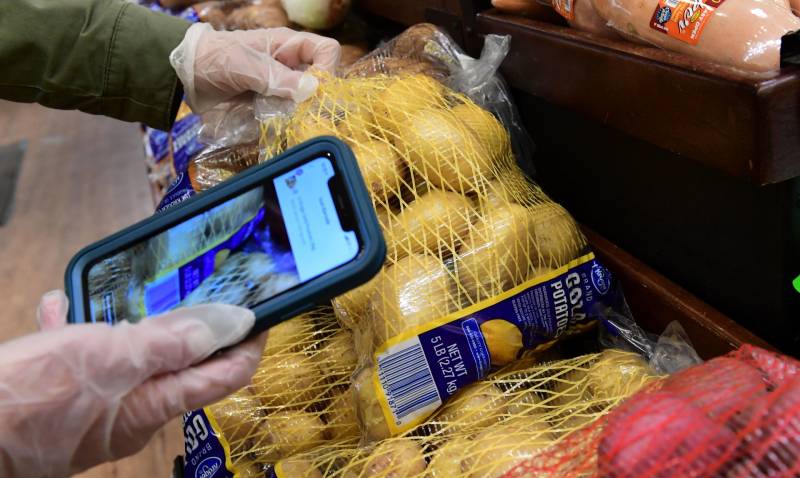For the first time since the pandemic started, Jacqueline Lopez and her family have money in their savings account. She and her husband both work in grocery stores around Los Angeles and they’re each getting an extra $5 per hour hazard pay.
“It feels good,” Lopez said. “I can pay rent on time.”
They’ve saved $2,000, enough to cover one month of expenses for her family. She has an 11-year-old, a 5-year-old and a 1-year-old. She said all of them, including her husband, got COVID-19 right around New Year's.
The pandemic had already disrupted their work. In the fall, her husband abruptly lost his security guard job. Her hours were cut at a convenience store. So they started working in grocery stores, despite the danger of the pandemic.
“I knew I was taking a big risk when it came to that, but we gotta work. We gotta eat,” she said. “We gotta pay rent.”
